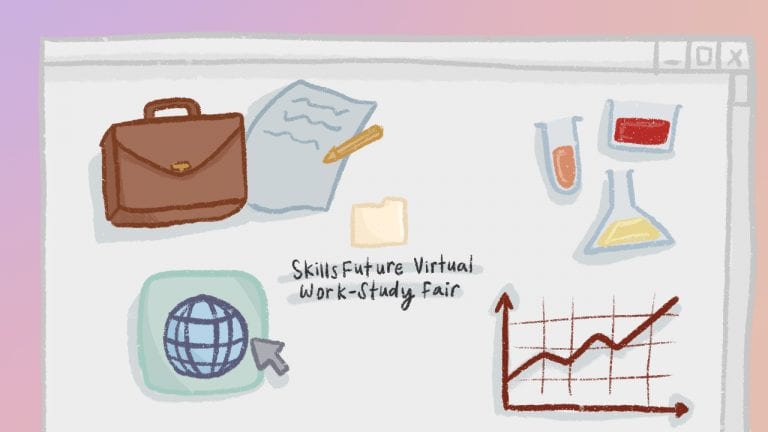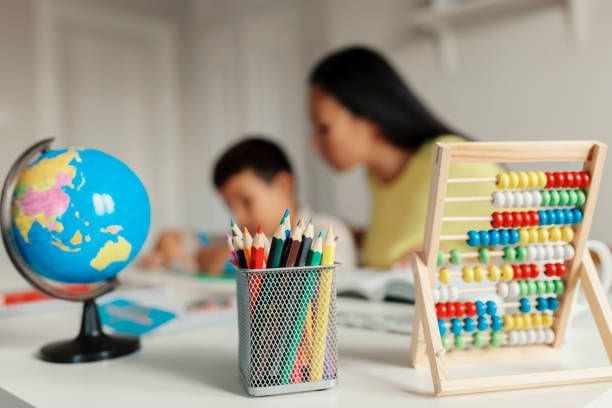
Ways to Develop 21st Century Skills in Your Child

Everyone goes through different struggles in life and even schoolchildren, as young as they are, aren’t immune to these struggles. It can also be especially tricky for them as this is the time for them to build their self-esteem as well. Additionally, while children may be achieving excellence in academics, this can also be a means for them to be distracted by the fact that they may also lack a certain set of skills.
This lack of skills can range from something obvious to the eye, like having difficulty choosing as a form of decision-making struggles, to some that can be concealed as another form of struggle. For example, a child may be having a difficult time making friends and connecting with people but this struggle can be due to underlying issues with their lack of good communication skills.
However, since the world is always evolving and everyone is on their path to grow and become better than they were, children are also encouraged to develop their 21st-century skills so they can prepare for a holistic approach to learning.
21st-century skills
When talking about 21st-century skills, the Ministry of Education released a framework and list of competencies that are essential to developing for the children’s future. They have included the core values that include respect, responsibility, resilience, integrity, care, and harmony. As such, they also put emphasis on the 3 core areas that are necessary for the globalized world. The following are:
• Civic Literacy, Global Awareness, and Cross-Cultural Skills
These competencies are important to develop in a globalized world. Global awareness can help students with making critical choices and decisions, not only for themselves, while also knowing that their decisions can impact the lives of worldwide communities. They would also understand what is happening around the world outside of their immediate vicinity and also understand how those happenings can impact them as well. One great way to practice this competency is through reading about literature written by authors from other countries. Another good way is to learn a foreign language. This doesn’t necessarily mean they have to be fluent with it but being aware of another language or study another culture is already helping them on their way. These practices can already help students see the world from different perspectives.
• Critical and Inventive Thinking
Many students are good at absorbing information and ideas from other people but struggle to formulate their own. If this is especially true with your child then chances are, they may be struggling with poor critical and inventive thinking skills. Critical thinking is very important when it comes to the development of one’s reason, analysis, and problem-solving skills. If you want to learn more about helping children develop their critical learning skills, check out this article.
• Communication, Collaboration, and Information Skills
In producing future leaders tomorrow from the current students of today, it’s important for them to exercise their communication and collaboration muscles. Will they become good future leaders without harnessing their communication and collaboration skills? That is highly unlikely. Leaders will be able to communicate well with the people around them however, this isn’t an inherent talent. It may take years of cultivation and learning for your child to master it. While schools offer children engagement, parents can also help their children by helping them practice and prepare for their oral exams.

Why children struggle in school
With the changing world. traditional curriculums no longer provide the competencies to help students with today’s competitiveness. This is why schools are no longer just looking at academics but also developing one’s holistic skills. This can involve including values to students. This may also mean that excellence in academic areas but lacking the right core values can still result in the child struggling in school.
• Lack of core values
Values shape one’s character as well as one’s actions, behavior, and beliefs. Lack of values can be a reason for the student to be unable to fulfill their responsibilities to themselves and also their duties to their families and the community. There are six core values along with the competencies and these work hand-in-hand with each other to help the student develop into a well-rounded individual. The lack of development of these core values can result in some struggles for your child so it’s best to help them develop these as the foundation for their growth as well.
• Lack of socio-emotional competencies
While having the core values is something, it’s also not entirely enough. In addition to the core values, parents and teachers should also reinforce values associated with social and emotional competencies. The combination of both skills can help the child build up and grow their character by living out their values, not just knowing them. Social and Emotional Learning (SEL) can also help children build positive relationships with the people around them and help develop the well-being and personal effectiveness of the child.
With SEL, it mainly tackles character formation and helps the child develop well-thought of choices and neutral awareness. However, there are still some children that lack social-emotional competencies that allow them to engage and interact with people around them and as a result, they may also have problems with their relationships with people. As such, this can also result in poor decision-making and can lead to a lack of social awareness and responsibilities.
SEL does provide a framework for developing the child’s social-emotional skills and focuses on five competencies.
1. Self-awareness
It is a very important competency to know oneself and with SEL, it can help your child understand their own feelings and improve their self-awareness. They will also be able to understand how their moods can also impact those around them. Schools can help with identifying the child’s strengths and weaknesses in a range of areas. This can help the child with making wiser and more sound choices in various parts of life. Parents can also help by supporting their children. When the child recognizes their own thoughts and feelings, it encourages the child to also make positive and proactive changes in their lives.
2. Self-management
If the child can recognize their own thoughts and become aware of them, they should also be able to manage their thoughts and behaviors. This is also the main focus of SEL on self-management. If the child is showing signs of trouble in anger management, they easily throw tantrums and the such, then this may be due to their lack of self-management skills.
The program also puts emphasis on strengthening one’s self-discipline and improve organizational skills. The child will become more responsible and proactive when it comes to decision-making when they become more aware of the concerns and importance of their academic performance.
3. Responsible decision-making
There are many signs of poor decision-making in children. It can be they are always waking up late and thus, arriving late for their classes, or it can be that they eat unhealthy snacks instead of fruits and healthier options. And as it follows, the consequences of poor decision-making can be dire if nothing is done about it. With this, students at schools will have exposure to situational exercises that will help them learn how to make constructive choices based on social and individual factors. And as such, they will also be more aware of the consequences of every choice they make.

4. Social awareness
If the child doesn’t understand the importance of wearing masks or keeping a distance apart from another person during the pandemic, then it’s a sign they may be struggling with a lack of social awareness skills. This is also the core competency behind the value of empathy. This lack of skills will not let the child understand the feelings and emotions of the people around them. By nurturing and developing these skills, the child will become more socially responsible for the benefit of everyone around them. As such, this will also help them realize and become aware of their role in the community.
5. Relationship management
Signs of the lack of this competency may be your child having few friends or none at all. It can also be your child may be having trouble connecting with other people. These can all be symptoms of poor relationship management skills. Relationship management is one of the core social-emotional competencies. Parents can help their children with developing these skills such as encouraging them to participate in group sessions and activities with other children their age.
What parents can do
As parents, there are many ways to help your child prepare for 21st-century skills. We’ve gathered a list of the ways to focus on as it will give a greater impact on your child’s holistic development.
1. Teach 21st-century competencies at home
Children start learning at home and as such, teaching the 21st-century competencies should also begin at home. You can help your child achieve these through activities that may be natural for the family so they won’t also feel they are bombarded with what they should learn. Parents can suggest family games, which can improve a child’s decision-making skills. Letting them also participate and not just listen to family discussions can also help. Reading and watching movies, like foreign movies, can also help them develop their global awareness skills.
2. Encourage 21st-century competencies in education
Schools may have varying initiatives when it comes to integrating 21st-century competencies in education however, they usually follow the guidelines set by the MOE. With this, parents can also enroll their child in a school advancing 21st-century competencies. This way, the teachings of the competencies at home will be reinforced in schools. And the same way also for the parents to reinforce what the child is developing at school at home. This can help them prepare better for their future.
3. Engaging 21st-century competencies through home tuition
Home tuition can also help foster the 21st-century competencies of your child. Home tutors can encourage a child’s critical thinking skills through their lessons. They can also easily spot if the child is struggling during their tuition sessions. And as such, they can also better influence a child’s results with their help. Tutors don’t just offer purely academic subjects. There are also tutors who offer to teach a new language and this can be a way for the child to develop their global awareness skills.

Carelle
Carelle is a teacher who has been through the ups and downs of the teacher and learner life. She wishes for every learner to gain educational satisfaction that will help embody the people they want to be in the future.
Tell Carelle Below What You Think About Her Post!

About FamilyTutor!
FamilyTutor is an established home tuition agency in Singapore! We match suitable home tutors for our clients not just to improve the students' academic grades, but also to build a strong rapport and meaningful relationship with the students and even the their whole family. FamilyTutor put every student in good hands!
If you need an excellent home tutor, feel free to call/WhatsApp us at +65 8777-2168! Our matching service is free!
Related Posts!
Follow Us On Facebook!
Our Service!
- Home Tuition in Singapore
- Home Tutor in Singapore
- Home Tuition Rates in Singapore
- Preschool Home Tuition
- Primary School Home Tuition
- PSLE Home Tuition
- Secondary School Home Tuition
- ITE Home Tuition
- N Level Home Tuition
- JC Home Tuition
- A Level Home Tuition
- Polytechnic Home Tuition
- University Home Tuition
- A-Math Home Tuition
- Biology Home Tuition
- Chemistry Home Tuition
- Chinese Home Tuition
- Economics Home Tuition
- English Home Tuition
- Geography Home Tuition
- H2 Chemistry Home Tuition
- Higher Chinese Home Tuition
- Hindi Home Tuition
- History Home Tuition
- IB Chemistry Home Tuition
- IP Chemistry Home Tuition
- IP Math Home Tuition
- IP Home Tuition
- JC Chemistry Home Tuition
- Literature Home Tuition
- Malay Home Tuition
- Math Home Tuition
- O Level Chemistry Home Tuition
- O Level Math Home Tuition
- O Level Physics Home Tuition
- Online Home Tuition
- Physics Home Tuition
- POA Home Tuition
- Science Home Tuition
- Tamil Home Tuition
Education Levels
National Exams
Math & Science Subjects
Language Subjects
Japanese Tuition
Korean Tuition
German Tuition
Humanities Subjects
Social Studies
Chinese Literature Tuition
About Us
FamilyTutor is an established and the people’s favourite home tuition agency in Singapore! We match a suitable tutor for you not just to improve the student’s grade, but also to build a good rapport and meaningful relationship with the student and even with the student’s whole family! With FamilyTutor, every Singaporean son & daughter is in good hands.
Contact Us
- 8777 2168
- 8777 2168
- Mon-Sun 9am-10pm (Including PH)
- contactus@familytutor.sg
- 17 Petir Road Singapore 678278



